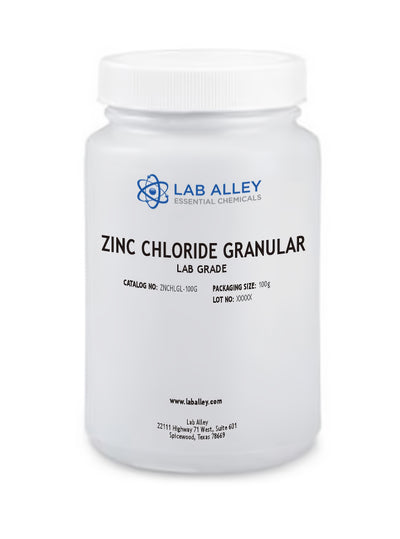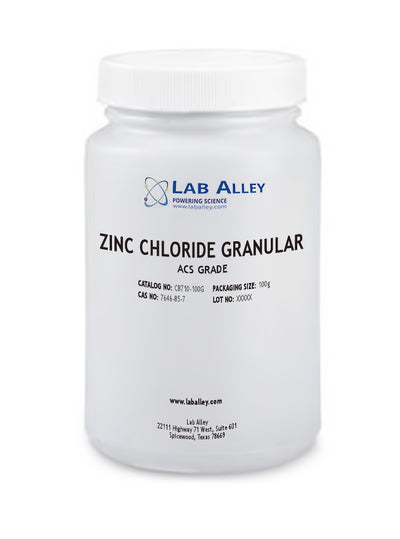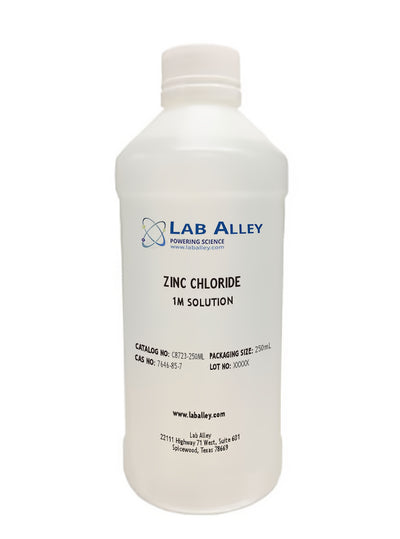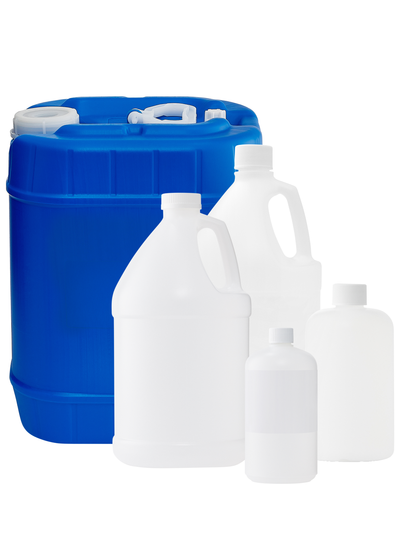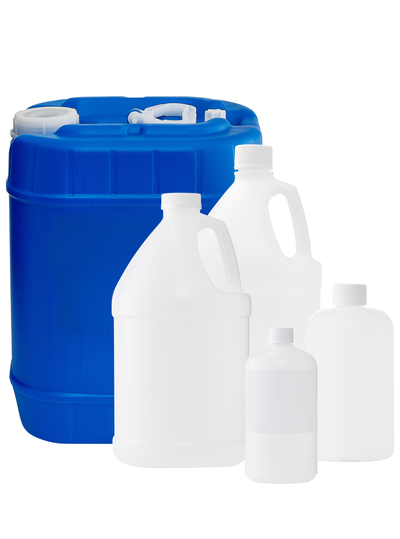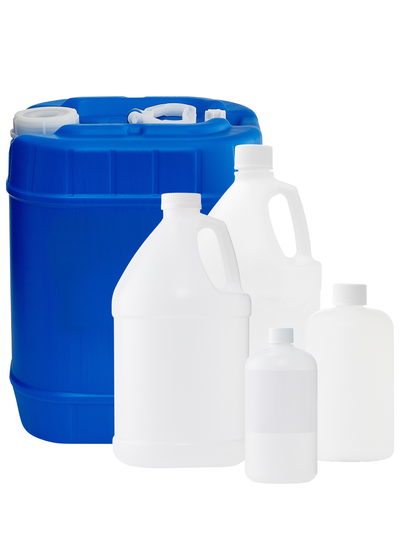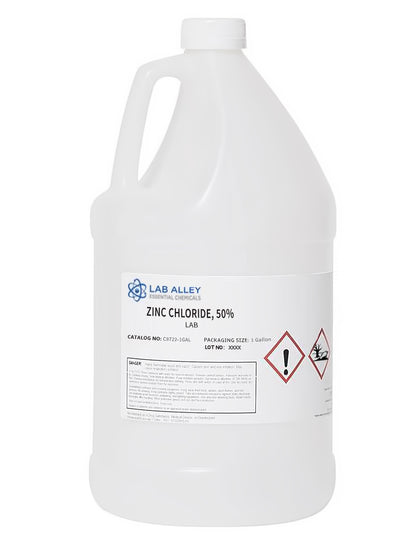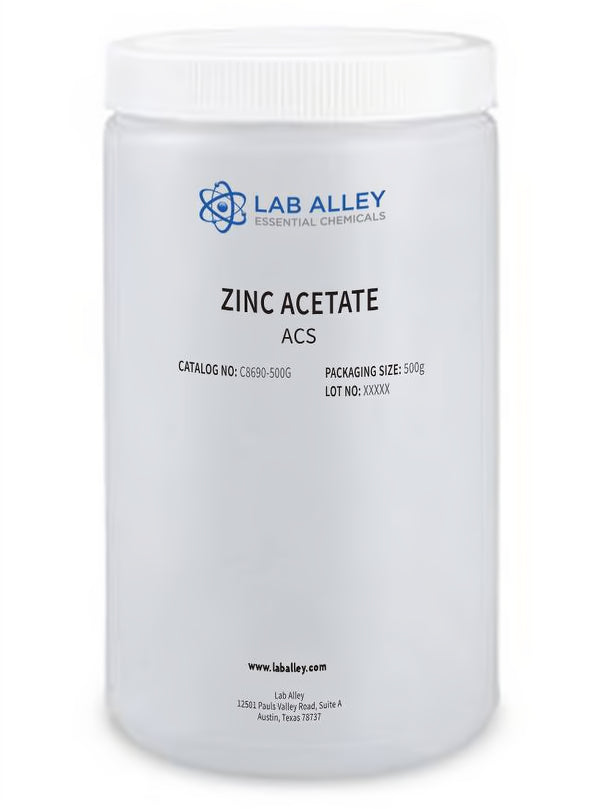
Business Support
Zinc Acetate 99.9% Granular (Powder) ACS Grade
For questions regarding lead time, please contact a member of our Customer Care Team at customercare@laballey.com
Business Support
Description
About Zinc Acetate 99.9% Granular (Powder) ACS Grade
Zinc Acetate Dihydrate, also known as Zinc(II) Acetate Dihydrate and Zinc Diacetate Dihydrate, has the chemical formula Zn(C2H3O2)2-2H2O or ZnC4H6O4. It appears as a white crystalline powder, chunks, or chips with no odor. It is soluble in Water and Alcohol at ambient conditions. Upon thermal decomposition, it produces a combination of products such as Carbon Monoxide (CO), Carbon Dioxide (CO2), and Zinc. Zinc Acetate (Zn(CH₃COO)₂) in granular form with ACS Grade (99.9% purity) is a high-quality reagent-grade chemical suitable for precise laboratory, industrial, and pharmaceutical applications. The ACS Grade designation indicates that it meets or exceeds the purity standards set by the American Chemical Society, ensuring minimal contamination and high reliability.
COMMON USES AND APPLICATIONS
- Reagent
- Chemical precursor
- Prevention of zinc deficiency
INDUSTRIES
- Pharmaceuticals
- Ion exchange catalysis
- Medical/dietary supplements
- Wood preservation
PRODUCT INFORMATION
Customer Reviews and Q&A
Safety and Shipping
Please contact Lab Alley to request a Safety Data Sheet (SDS) and Certificate of Analysis (COA) for Zinc Acetate Granular ACS.
Business Support
Built for Business.
At Lab Alley, we simplify procurement with custom quotes, credit applications, tax exemptions, and fulfillment support, ensuring on-budget, on-time delivery - your success is our priority.
Apply for Credit
A Lab Alley credit account streamlines purchasing for your business. Our Customer Success Team is available to help you through every step of the process.
Request a Custom Quote
Get a fast, customized quote tailored to your specific needs. Our team ensures accurate pricing and availability to help streamline your purchasing process.

Additional Business Resources
Lab Alley provides access to essential certifications, documents, and other resources to support your business.
Product Manuals
Certificates of Analysis

Create a Lab Alley Account

RECEIVE exclusive offers, promotions, and discounts on chemicals.

Always have the product you need, when you need it with our AUTOSHIP program.






